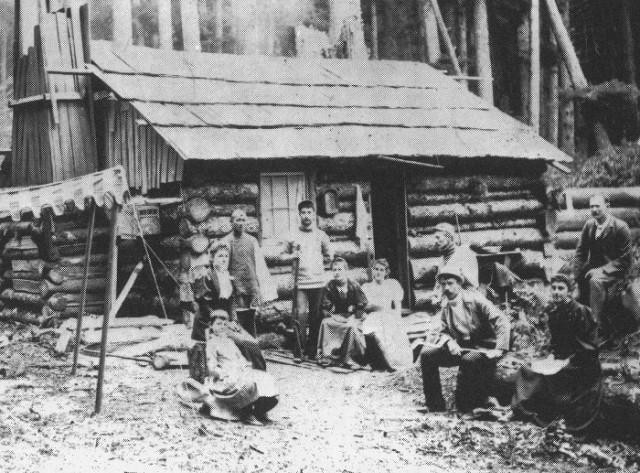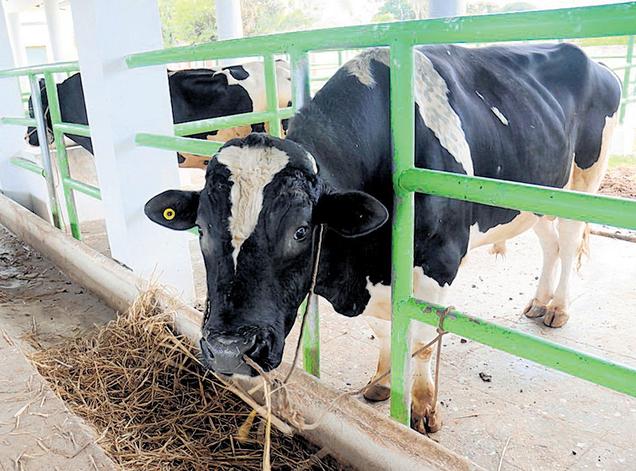If you are going to take a person from the most urban city of the planet and move him or her into the countryside, not even the wild, there’s more than 50% chance they will have difficulties adapting to the new environment. Modern lifestyle has turned people into highly-dependent beings; whether it’s dependency towards the car, towards the supermarkets, towards technology, you name it – it’s there in the majority of inhabitants of a city.
It’s quite rare that young people growing up nowadays now something about basic carpentry or mechanic work. It may not sound like the end of the world, but in emergency situations you better know some stuff. The following 10 survival skills are simple and people should start learning them if they want a competitive advantage against their fellow youth.
1.Gardening for Food
During World War II, there was a campaign for people to plant “Victory Gardens” at their homes. These vegetable gardens were needed to alleviate food shortages, because so much of the nation’s produce was being sent overseas to keep our troops and those of our allies fighting. With fewer men available to work the farms, there was less produce available.
This custom of having a vegetable garden in one’s backyard survived for many years after the war was over, but it gradually died out. Today, when many people think of gardening, they are thinking of a flower garden. While those are nice to look at, they don’t give you much to eat.
Starting and growing a vegetable garden can be harder than most people think. When I started gardening, it took me three years to get more than just herbs and a smattering of produce out of it. I’m glad I didn’t wait until I needed that garden for survival.
2. Animal Husbandry
Although the industrial revolution took place more than 100 years ago, many people continued to raise at least a small amount of their own livestock at home. This led to cities enacting ordinances limiting what animals people could keep within city limits.
Raising dogs and cats is much different than raising chickens, rabbits and goats for the table. A large part of being able to raise these animals is recognizing their needs and being able to diagnose their sicknesses. Farmers don’t depend upon the vet for most illnesses; they take care of it themselves.
3. Hunting and Fishing
Everyone in your great-grandparents’ generation knew how to hunt and fish for food, it wasn’t a sport or hobby for them, it was a way to provide for their family and cut down on food costs. It didn’t matter where they lived, if they lived in a rural area or if they lived in the city. Being able to kill or catch their own food was an essential survival skill and it proved very useful, especially during harsh times, like the Great Depression. Raising an animal is one thing, butchering it is another. Few hunters even know how to properly butcher an animal, as most take them to a butcher for cutting up and packaging. Yet, an animal which is not properly cleaned and butchered can cause disease. You can also waste a lot of good meat by not doing it correctly.





















10??
Sorry. 10 didn’t load the first time. BTW I can do all of those things. We raised and milked dairy goats for 10 years and had chickens, rabbit and ducks. I also patch the patches on my husbands overalls. All things that most people don’t do anymore. I also had to darn socks when I was young.
So thankful that I can honestly say we know all of these skills and can add a couple more to the list. It’s been a long learning curve but well worth the journey.
Know and do every one of these except black smithing…and my husband knows that.
You can add ‘sewing and mending’. People don’t know the basics of that any more.
So true.
I like that addition. One can add making sundries: soap, toothpaste, deodorant alternatives, shampoo, laundry and household soaps, medicinal alternatives, starchs, and there are many more. Then there are many alternative Pantry Items to be explored Examples are yeast, startch, soup bases, dehydration of “leftovers and foods/nuts/fruit. The list is vast. .
Friend still makes her own (goats milk) soap, lotions, bath bombs, laundry soap, lip balm, salves for everthing, cans and makes jellies – she’s amazing! Her husband is handy, built their house and he welds, too.
Any chance I could contact her for some recipes? Just started milking a goat.
Most of these I at least have a good handle on and the ones I don’t, I’ve got neighbors who do. And some of them I find it unimaginable that someone wouldn’t know.
Things I remember are:
*Making Soap
*Growing a vegetable garden
*Canning food
*Raising Chickens for eggs and meat
*Tending livestock
It’s on there. Number 9
We didn’t call the herbs made for medicinal purposes ‘Old Wives’ Tales’ we called them ‘Home Rememdies’. To me an Old Wives Tale is something that was ficticious. A fairy tale or a story handed down or maybe something that was used for medicinal purposes but didn’t work. Those we might have called an Old Wives Tale. But not herbs for healing. I think you are using it wrong. imho
People who use the herbs and such call them Home Remedies. The folks who don’t use them scoff at their use and say, “Oh that’s just an old wive’s tale.” People tend to ridicule anything that they don’t believe or use.
Got 8 out of 10. We don’t hunt or fish but know how to. Don’t do black smithing – no horses. Have all the test down pat.
Right now I’m living off grid.. I’ve completed the list except Black Smith, Breaking a Horse (at 50 I’m excused), and although I know I can I’ve yet milked a cow
I didn’t know there was a test.
There’s also knitting and crochet, trapping and making leather and fur clothing, gathering wild edibles, building with stone and logs, even cooking full meals has almost become a lost skill.
Was brought up learning all those skills plus quite a few more. I was shooting and snaring rabbits at age 10, and skinning them. Thanks to my Grandparents and parents I have all the skills required should I ever need them.
cooking at all, esp in urban populations, is becoming the thing that only chefs do, it’s truly bizarre to me. Rural not so much, I think it likely that most rural people have someone in the house who cooks at least part of the time. What else is astonishing is how many people both urban AND rural don’t have gardens.
Most young people don’t even know how to cook !
I’m thankful that I learned all those things from my parents and in schools.
Some 4-H Cornell Ext. Started teaching all the basics again !
There are many things left out like rendering lard, making soap and candles, churning cream into butter, foraging for wild growing edibles, using animal excrement for fuel.
Yes, there is a difference between home remedies and old wives tales. For instance, taking apple cider vinegar is a home remedy. “If you have a lot of hurt burn during pregnancy then your child will have lots of hair,” is an old wives tale
10? I only see 6.
I must consider myself blessed, my mom passed the knowledge to do almost all of it except blacksmithing. And a wooden high heeled shoe makes a decent hammer in a pinch
If I have to learn all that to survive – SOMEBODY SHOOT ME!!!
A couple of my grandparents did 2 of these things, I don’t think that urban poor working 16 hours a day in a factory had a lot of time to do these things if they weren’t there full time job.
Might want to add wielding an axe to that list…..
Awesome. I know 8 out of 10
Why are there only 3?